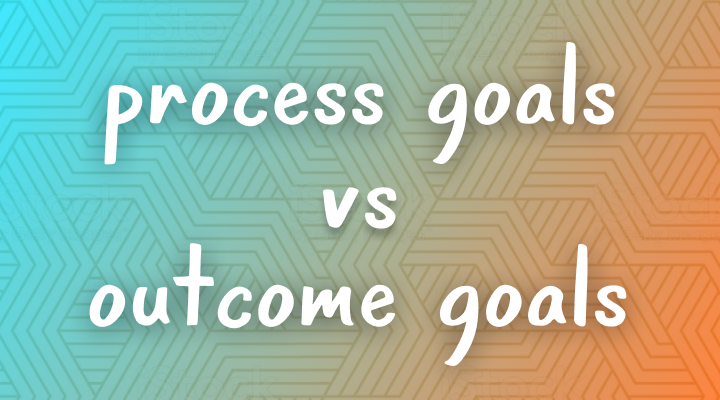It's that time of year again. As 2024 dawns, it's time for us to think big, get ambitious, and set some goals that we'll ultimately forget about or give up on by February 😅.
Why do we do this? Why is it so hard to actually make changes in our life even when we have the motivation, discipline and time? Well, according to Ali Abdaal's new book, Feel Good Productivity - which I've been reading lately and definitely recommend - it might be because our goals focus too much on a future outcome.
Often times when we create ambitious goals for ourselves, we create "SMART" outcome oriented goals: run a marathon, read 50 books, publish 100K words. And although these goals are specific, measurable, attainable, repeatable and time-bound - they often don't give us any insight into how we're going to achieve those goals.
NICE Goals
That's where Ali Abdaal's NICE goals come in. NICE goals are near-term, input-based, controllable, and energizing. These goals focus on creating immediate action, emphasize setting a routine, and encourage us to make the process of making progress fun and apparent.
For example, recently I posted about my goal to publish 100K words this year. That goal is "SMART" and outcome oriented. However, to achieve that long-term goal, I also set a process oriented "NICE" goal: I'm going to write 1,000 words every weekday.
A process goal is a smaller, habitual goal that you set up for yourself that enables you to achieve the desired outcome. I started thinking about process goals more during my NaNoWriMo writing sprint a few months ago.
The overall goal of NaNoWriMo is to write 50K words in 30 days. When I told people I was doing that, they looked at me like I was crazy. However, that's because they were focused on the outcome goal. The process goal though is much more manageable: write 1,700 words a day.
To some, that still might seem like a challenge, but to me that was relatively doable. It was challenging, but not impossible. It was a stretch but not a strain. This is another important thing to recognize about the power of process goals.
Show me how.
Process goals help us see how we're going to achieve a desired outcome. This helps us make a plan but also helps us see if our goal is truly realistic. It's really easy when we're spitballing New Year's Resolutions to say that we're going to accomplish some incredibly ambitious goal. It might even feel extremely doable and motivating in that moment as we hype ourselves up for the year ahead.
But then, when we get into the process and realize that running a marathon means spending 3-4 hours a week running, it becomes harder. We need to fit things into our schedule, change our habits, adjust our lives, and doing extreme process changes is what kills our ability to succeed.
However, if we paired our outcome goal with a process goal, it's much more realistic to identify what we're capable of before we even get started. Can't make time to run 3-4 hours a week? How about 1-2? That might mean we need to adjust the outcome goal to a half marathon. Not as flashy and cool, but more realistic. And realism is motivating. This mindset change becomes even more powerful when our outcome goal actually follows our process goal.
For instance, 2024 is what I'm calling my "Year of Health" in which I get sincere about taking care of my body and specifically my heart. I'm going to the doctor, refining my diet and getting more active. My process goals for that are to add jumping rope 3 times a week to compliment the calisthenics workout I do twice a week. Then, I want to go on a run or bike ride on Saturdays and play soccer on Sundays.
My outcome goal for this process goal is to run the Richmond marathon with my friend Dat at the end of the year. However, I'm not even thinking about actual marathon training until late April. For now, I'm just focused on my individual process goals that are already marked in my calendar and ready to be executed.
Fall in love with the process.
Setting process goals forces you to focus on your plan and your habits instead of the singular mission of some arbitrary outcome. Especially for health related goals, I've found this mindset change to make the habits built during training more long lasting. Because once the marathon comes and goes or the book gets published, that leaves opportunity to celebrate and then leave the process behind.
But if you fall in love with the process and have the outcome be a marker of progress, the change becomes something you do rather than something you did. This generally makes you more focused on setting long-term goals for change in your life with concrete plans and slow steps rather than trying to perform the "get rich quick" of goal setting which inevitably leads to worse odds and a higher chance of failure or regression.
Focusing on the process sets ourselves up for success, and I hope you'll take the time this year to set some process related goals for 2024.
Until next time.

